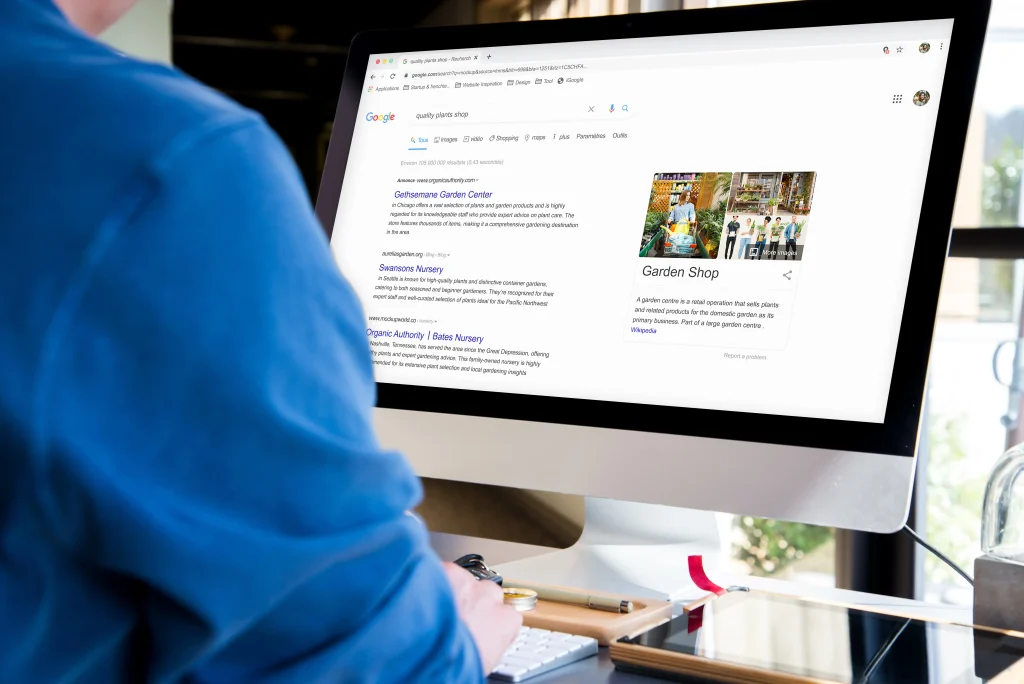There’s no question: We now live in an age where creating a presence online is a major factor in whether small businesses live or die. Gone are the days of phone books, newspaper ads, or radio commercials. These days, without a user-friendly, navigable website, it becomes a lot harder to get your service or product in front of a younger generation.
So, in light of this, how can small businesses who may not have the luxury of having a web developer or the resources to employ a web agency adapt? They’ll have to do the leg work themselves and become a student of the online space. The first step is planning and mapping out an up-to-date and easy to use website, as that will be the first place a prospective customer comes to find out more about you.
It’s a common misconception that building a website is a huge and complicated undertaking. That’s why many small businesses settle for clunky, outdated sites, or they shy away from online visibility altogether. The truth is, if you’re open to learning a new skill, building a DIY website isn’t as hard as it seems. So, here are 6 key questions you should be asking as you start to build your website.
1. What is My Budget For Getting This Site Live?

Just like any other business expense, a website is an investment. It’s up to you to decide just how much you want to invest in it. Some hidden expenses when building a website include hosting, a domain, and any premium plugins you might need to make your website appropriate for your business. But by far, this is all far more cost-effective if you choose to build your website yourself, rather than hiring a web agency, which could cost you $2,000+ to do it for you.
Your domain is the address of your website. It’s what people type into their internet browser to get to your homepage. Ideally, you want it to reflect your business name, industry, or locale as closely as you can get it so that search engines and potential customers can find you easily. Hosting refers to the actual service that stores your site on an online server so it’s accessible to anyone.
Hosting providers can be companies like cyber_Folks, where users can build their websites off of pre-made templates, as opposed to web agencies that will code an entire site from scratch. While highly customizable, building a site using a web agency and code means that you may not be able to go in and make certain changes yourself. You will almost always need that web agency to help you make fundamental edits, which means you’ll always be on the hook to manage your site.
As far as plugins go, these are extras that you can add to your website to customize it to your needs. The good news is that if you choose to DIY your site, website builders will have checklists built in to help you stay on track and remember all the moving parts necessary to set up a site that works for you—and all without breaking the bank.
While web agencies are useful for larger-scale companies that need lots of customization, integration, or ecommerce capabilities on par with big corporations, DIY site-builders end up being the best option for small businesses as they come together quickly and are easily managed by the business owner themselves. The long and short of it is that your website is going to cost you in time and money, but you’ll save on both by using a website builder, as long as the scale of your business doesn’t require a highly customizable site or high-end elements.
2. What is My Business’ Branding and How Does That Translate to a Website?

You want your website to be consistent with how your business comes across in person. If you already have a branding strategy, then you probably already have a clear idea of the actual aesthetical design and the tone of voice you want to come across. But if your palms start to itch at the thought of another sub-project before you actually get to the website building, here’s a trick: Think of your business and picture yourself sitting at a table. If you had to place things in front of you that visually represented your business, what would they be?
If I’m a brick oven pizzeria, then my table would probably have a lit candle, a big, beautiful pizza on a worn pizza paddle, and friends and family around the table. How does this translate to your website? If you’re looking at all these items, there’s probably a common color palette, a casual and neighborly feeling and tone, and a general sense of warmth and nostalgia. All these things should now become a part of your design.
Incorporate those colors and visual aspects in the margins of your site and in the color scheme of the negative space and fonts. Use that personality in the content on your site. Make sure those basic details are easily found such as your points of contact, phone number, and any physical location you might have for your brick-and-mortar business.
With a plug-and-play, do it yourself website, you can pick a theme that gets you close to your overall vision and then customize colors, graphics, and content. Plus, with new features using AI-technology, builders like _now can look at competitor’s websites and mimic the style of the layout and colors to give you a head start on your own webpage.
3. What is the Purpose of the Website?

Are you trying to generate leads? Are you selling a product? Providing information? Yes, we know that in today’s age, if you’re hoping to reach a younger clientele or a wider audience, you need to be online, but once that audience gets there, what are you hoping your website does with them?
There are lots of different ways you can engage a client in your product or service once they get to your website; it’s just a matter of making sure you have the resources and tools built into your website to push those consumers toward your business.
If you’re an insurance agency, consulting business, or a hairdresser, maybe you want to get that browser to contact you for a quote. If so, a contact or inquiry page that sends to a monitored email would be your angle. Better yet, maybe you can integrate your site with an online booker so people can make appointments or book a consult with you.
If you’re an artist, retailer, or freelancer, maybe you want an online storefront where someone can purchase your physical items to be shipped to their door or digitally downloaded.
If you’re a church, entertainment venue, or food service, you probably just want people to know where you are and what they might get into if they paid you a visit. In that case, a blog page with a backlog of social media, videos, and pictures would help people see what you’ve done before and what to expect when they decide to stop in.
The good news is, whatever you’re looking to do, it can most likely be done using a support plugin or integration that makes this step easy. Most builders like _now by cyber_Folks offer standardized options that will help your site function easily at lower costs than if you were to build one from scratch using an agency. The main goal is to build a site that connects with your ideal clients and engages real users in a way that translates to sales and transactions.
4. How Can I Make My Website as Accessible as Possible?

As you develop your site, test it out. Not just with you and your team, but with objective test subjects too. Ask a friend to take a test drive of the website. Is it easy to navigate? If they were a prospective client, would they be able to easily use the site and locate what they’re looking for? Is your website sleek, clean, and workable? Or is it clunky and reminds you of the 1990s?
Pull your site up on a mobile device. Did you know that mobile users make up 58% of global internet traffic? That means that more people search the internet on their phones or tablets than they do on actual laptops or desktop computers. Make sure that your site is not just usable on a big computer screen, but also on the more compact screen of your phone. You might just be surprised by how your beautifully perfected website doesn’t really translate to a mobile device.
The most important thing here is to make sure that your website’s responsivity is at the same quality across all platforms and devices. Make sure it’s just as responsive on a phone as it is on an iPad or a desktop computer, and that all your elements look just as good on all screen sizes.
5. Is My Website Designed in a Way That Makes it Easily Discoverable?

Did you know that 73% of small businesses already have a website? Because of this, it is so important to put your best foot forward in making sure your site is as discoverable as it can possibly be. In a sea of other sites in similar industries, you want to make sure yours is among the top of the heap when it comes up in search engines.
Sure, lots of people pay buckets of money to make sure they come up as the first result, but a lot of that goes into wording their websites so that they match common keywords that people are searching. This is where SEO (search engine optimization) comes in. Again, don’t let those palms get itchy, it sounds harder than it is.
Essentially, SEO is the process in which content and website creators build their websites using targeted keywords that are relevant to their business. As that website goes live, search engines skim all the pages on it and store infinite amounts of data that all works together and waits for someone to go searching for it. Once a consumer searches, if those keywords are present and relevant on your website, the search engine compiles websites that help the consumer answer their question or problem.
The more relevant your site is, the higher it will rank in those search results. But SEO doesn’t stop there, because the more people discover your website and engage with it, the more search engines notice and learn that your website has what online users are looking for, which improves your website’s ranking when people continue to search for those keywords on your site.
Thus, the more relevant your content is, and the more people view it, the better your standing becomes in search engines, which only feeds the fire when it comes to getting new, organic hits on your site. While an agency is going to be able to develop a website with SEO to a degree a website builder can’t, the vast majority of small businesses don’t need the nitty-gritty technicalities of SEO.
The portion of SEO web builders need to focus on is the “lightweight” aspect of your website. Are there elements or features on your site that weigh it down and result in longer load times? While these elements might be cool or visually interesting, the easier a website is for a search engine to understand, the better your SEO standing will be.
It’s also worth mentioning that most builders will offer technical SEO support for this and their templates have already been optimized for things like page speed and sleek layouts that are ideal for search engines. For most small businesses, throwing more money at SEO doesn’t equal more traffic.
This is why many businesses will include a blog on their website, so that they can continue to generate new content for people to come across, interact with, and generate visibility for their business. You may be thinking, “I don’t think I can come up with subjects to blog about for my business,” but you’d be surprised. Most businesses can take the knowledge they have of their business and leverage it into a blog that helps to establish them as an expert in their field to online viewers.
Blogs are traditionally thought of as text posts, but if you expand out to pictures and videos of your product with written captions and commentary to accompany it—well, suddenly you have a functional and super engaging blog! Plus, the _now builder comes with a blog already created and ready to use with an AI content assistant already integrated that helps to draft and rephrase content while you write.
6. Can I Trust Myself to Make a DIY Site That is Just as Good as Big Biz?

The answer is unequivocally YES! Ultimately, you are going to know what’s best for your business. You know it inside out. You know your ideal clients and what they’re looking for. You have expertise in your business, so if you feel out of your depth with website building, remind yourself that you are the expert in your niche.
A web agency is a perfectly fine choice when developing your site, as long as they meet a need that you can’t accomplish yourself. But to work with them is already an expensive endeavor, and you have to be on guard that they may upsell you on various 3rd party plugins that are not altogether necessary for your site to be workable or to integrate your company into social media outlets that you don’t use to promote your business.
That’s an easy way to break your budget and run up a tab that you’re not prepared for, and to have several bells and whistles on your site that ultimately go unused or don’t add that much value to your business or your website. And that’s not to mention the continued costs to maintain your site after it’s built. If you use an agency to build it, there are strong incentives to continue using that agency to manage it.
Most agencies offer a marketing plan that they boast will increase your discoverability online, but in reality, it’s often better to either do your own marketing or work with a specialist in that area. And once you’re on the hook with a web agency, it’s nearly impossible to part ways. If they decide to raise their rates, then you’re tied to an agency simply because they built and know the code of that site.
What it comes down to is that, as a small business, you CAN build your own site. You shouldn’t shrink back from the task simply because the common idea is that it’s too hard. With builders like _now, you can make a beautiful, easy-to-use site that helps you connect with clients. As the business owner, you know what your clients are looking for and the best way to translate your business to the web.
Plus, you can do it faster and less expensive than a web agency can. Truly, a professional and functional website can be achieved by you for around $120 a year and even things like content creation and website copy can be achieved thanks to new AI tools. All it takes is 60 seconds to start on the _now website builder.
As the business owner, we know you’re busy and just a minute might be all you have to generate your own website and bring your business into the now.



0 comments